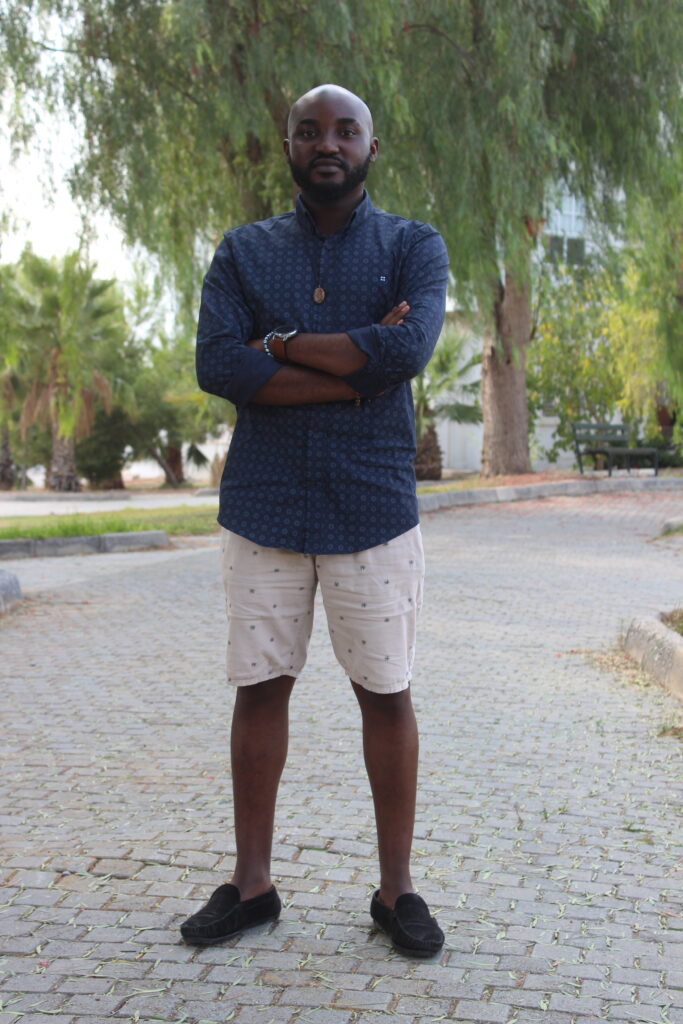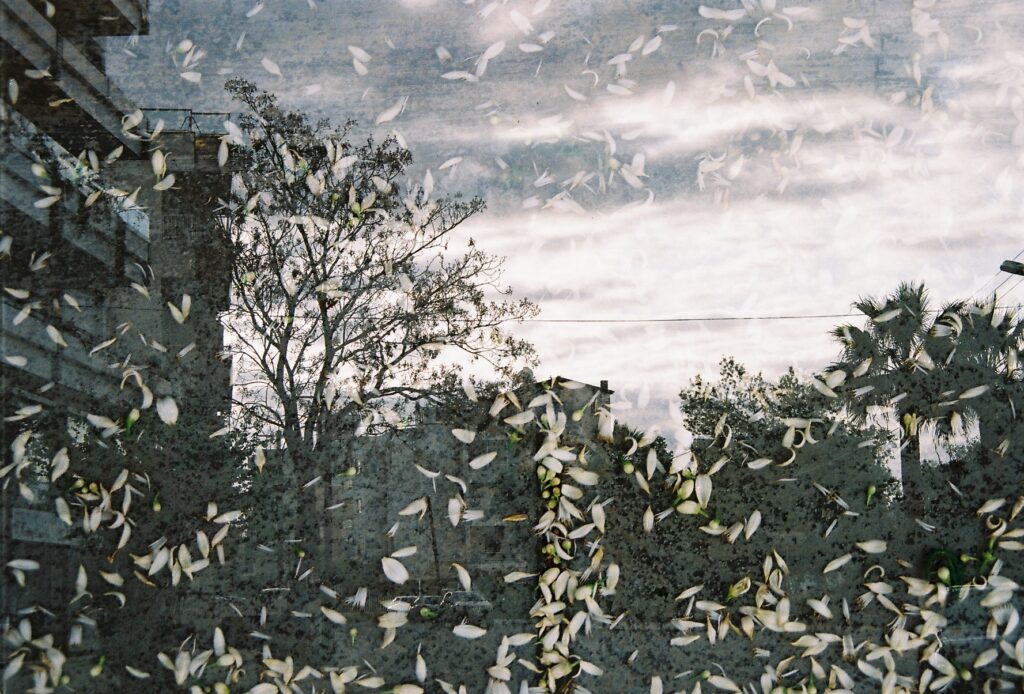Zeroing in on Cyprus is not an easy task. Too often, outsiders’ perception of the island fails to go beyond the political division of north and south. But Cyprus is more than a line drawn on a map, and there are so many more stories worth telling. There is a yearning from the island’s youth to move on from the bloodshed of the Cypriot past and rediscover our identity, with all its complexities and beauty.
Situated at the edge of the Mediterranean Sea, it would be easy to forget that Cyprus is a member of the European Union. The small island state has been divided since 1974, when a coup d’état by the Greek military junta was followed by Turkey’s invasion and occupation of the northern part of the country. The conflict led to the nation splitting into two. In 1983, the Turkish Republic of Northern Cyprus (TRNC) unilaterally declared independence. The region is considered as Turkish-occupied territory of the Republic of Cyprus, and the occupation is viewed as illegal under international law. The TRNC lacks any international recognition with the exception of Turkey.
The primarily Greek-speaking community of the Republic of Cyprus in the south benefits from EU state membership and an open economy. Today, the ongoing dispute between Greek Cypriots and Turkish Cypriots is known as the Cyprus problem, or the Cyprus dispute. Peace talks facilitated by the UN and the international community since the 1960s have failed to find a long-lasting solution, and recent developments have shown a further deterioration in the relationship between the two sides.
That story has already been told. In fact, it is probably the only story you have ever heard about the island. On the ground, the narrative has led to a sense of exhaustion—especially among the Cypriot youth. Overshadowed by failed diplomacy, many feel their future is on hold. But others try to shake things up. Meet Emmanuel and Andromachi, two people fighting the political impasse in Cyprus by letting their dreams take root in the rubble.
“A blessing and a curse for migrants”
Emmanuel Achiri has called northern Cyprus his home for seven years. In 2014, the Cameroonian-native arrived to the island to pursue a Master’s degree in international relations. As an international student, Emmanuel knows the difficulties of pursuing higher education on an island with such a complicated political situation firsthand.
Throughout history, Cyprus’ geopolitical location has often been described as a “blessing and a curse” by its inhabitants. The island is situated at a crossroads between three continents; Europe, Asia, and Africa, a fact that has undeniably contributed to its unique status as a patchwork of cultures. But its location has also made the island a hotspot for human trafficking, with the majority of the victims being pushed into prostitution or forced labour.
Many international students in the Northern Cyprus arrive there after falling victim to human trafficking by dubious agents, who often promise scholarships, accommodation, or employment.
“International students are deceived, they are misled,” Emmanuel says. “And then they come here and find that they are not where they expected to be. And as a result of that, they have to survive. So, some of them get into drugs, others are exploited by their employers. Many are exploited sexually as well.”
In 2018, a 28-year-old student from Nigeria named Kennedy Taomwabwa Dede was kidnapped and murdered in Famagusta, a city in Northern Cyprus. Dede, who studied architecture at the time, was facing economic difficulties and began dealing drugs. After failing to pay off his suppliers, he was kidnapped and heavily beaten. He died of a cerebral hemorrhage.
The incident sparked outrage in the local community. It inspired Emmanuel and his peers to join forces. The group founded Voices of International Students (VOIS)—a non-profit organisation that has since expanded their presence to the five biggest universities in the TRNC and established themselves as representatives.
On the island, Black people experience the worst effects of racism. “The xenophobic attitudes towards Black people are very high,” Emmanuel explains. “I mean, there’s no denying that.” In 2020, VOIS ran a survey asking international students in the TRNC about their experiences with racism and discrimination. It found that 88% of the respondents “had been victims of racism in the northern part of Cyprus.”
“That is extremely high,” Emmanuel says. “I have personally witnessed that as well. I went into a shop once and this guy told me he doesn’t sell to Black people. Another time, a homeowner said it was policy to not rent their apartments to Black people.”

Emmanuel and his fellow activists have been working hard to open up the conversation on racism in the north. But according to him, there is little political will for society to face up to the issue—even when there is violence involved.
“We started seeing Facebook pages created in the northern part of Cyprus, specifically targeting Black students. Some of them were even “calling on true Turkish Cypriots to join the police and other security services so that we can have a licence to beat Black students.” This is a dangerous turn. Of course, we brought this to the police and other state public stakeholders, but there’s really no political will to do anything about this.”
“The uniqueness of Cyprus has always been the fact that it is a melting pot of civilisations. And even though the Cyprus dispute is a very important issue, the frozen conflict—it’s been going on for years. And the stories of international students; the stories of those who are victims of human trafficking; the stories of those who are victims of xenophobia or racism, the stories of those who are or have been sex trafficked; the stories of those who are exploited in the workforce—these are all stories that are also important.”
“We have been both victimisers and victims at the same time”
We meet Andromachi Sophocleous on the crumbling stairway of an abandoned mansion—“Archontiko,” as it’s referred to by the Greek Cypriots—in the buffer zone. It’s situated in the green line, a strip of uninhabited land that stretches the island from east to west, separating the Republic of Cyprus from the Turkish Republic of Northern Cyprus. The buffer zone offers a faint glimpse into what the city once was before the events of 1974. Today, the mansion sports visible bullet holes and defence sandbags lined along the windows.
“If someone wants to understand who we are, they ought to look at our food,” she says. “What is our food? It’s a multicultural platter. It’s a combination of many cultures, people, and civilisations.” According to Andromachi, many have forgotten that Cypriots are a fusion of multiple cultures and influences. “Because of the division, we’re so consumed by the conversations surrounding our national identity, the sides we support, the places in which we live, that we forget about what makes us who we are.”
Andromachi’s eyes light up as she excitedly lists some of her favourite gems from the local cuisine. As she puts it, Cypriot food is not just a simple blend of Turkish and Greek flavours, but rather a colourful mix that also includes influences from the island’s neighbours in the Middle East. Her excitement quickly fades, however, as she describes some of the dishes she tried from the Turkish-speaking community that have faded with time in the south.
“Just as we Cypriot people divided, so did our food,” she says. “We’ve left pieces of ourselves behind. But these pieces of our culture—it’s sad that we’ve forgotten them.”

In 2017, the 33-year-old became part of a spontaneous activist movement dubbed Unite Cyprus Now, which began as a collective cross-communal grassroots initiative to apply pressure on politicians to see through their promise on reunification. The group continues to be active today, still pursuing their mission of fostering peace and communication between both communities.
“As a person who grew up on a divided island and has such a history of pain, blood, and war, we’ve become so accustomed to hearing stories that either cause us pain or hate. That’s why for me, my favourite stories have always been those about coexisting, the stories about how we helped one another during difficult times.”
Andromachi stresses that the current narrative around the island’s recent history has driven the communities further apart. “I feel as though we’ve drowned ourselves in our own pain and can no longer see things clearly. I would like especially for people of my generation or younger to be able to see things differently. To accept that we might have been both the victimisers and the victims at the same time. To understand that we shouldn’t be placing our pain on a scale—it’s pointless to do so.”
In 2003, after 30 years of the north and south being completely closed off to contact by barbed wire and a UN peacekeeping mission in the buffer zone, the two sides agreed to open checkpoints and allow crossings. To cross, visitors must show their ID or passport and register their entry with local custom officials. Still, Andromachi fears that the current climate offers only bleak prospects for reunification.
Amid all the adversity, Andromachi continues to strive for a unified Cyprus. For without it, she claims, there is little to hope for in the future. “Without solving the division, we will never be able to improve our country for its citizens,” she stresses. “We will always be at the mercy of some politicians who have built a career around the division. So, for me, a solution is the only way to ensure a sustainable future for Cyprus. Anything else we do will just be workarounds. Anything we do now, before reunification, are just temporary solutions without the long term in mind.”




